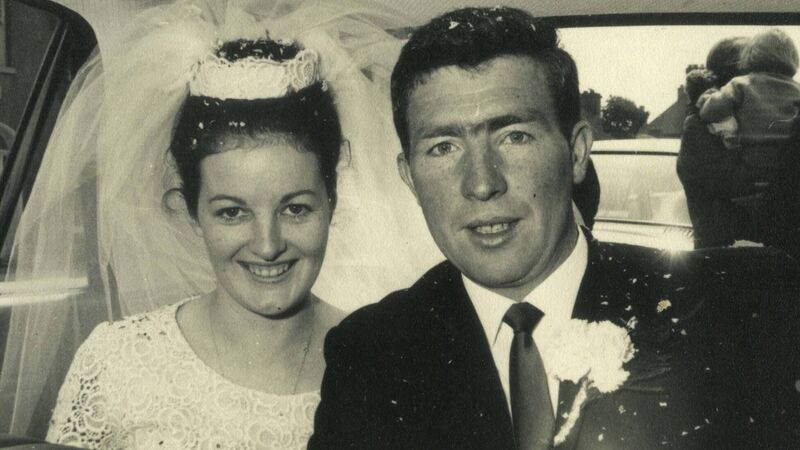‘It was one up for the women’: Mary ‘May’ McGee's family to celebrate her life at funeral

Mary 'May' McGee and Seámus McGee on their wedding day.
It is entirely fitting that the relatives of Mary ‘May’ McGee, who has died aged 81, have asked people to wear bright colours to the service celebrating her life at Dardistown Crematorium in Dublin on Saturday morning.
She was bright and radiant herself, her newly dyed purple hair the perfect complement to the vivid colours in the mosaic by artist Helen McLean which was unveiled just two short months ago in recognition of the landmark case she and her husband took in 1973 to challenge the State’s ban on contraception.













